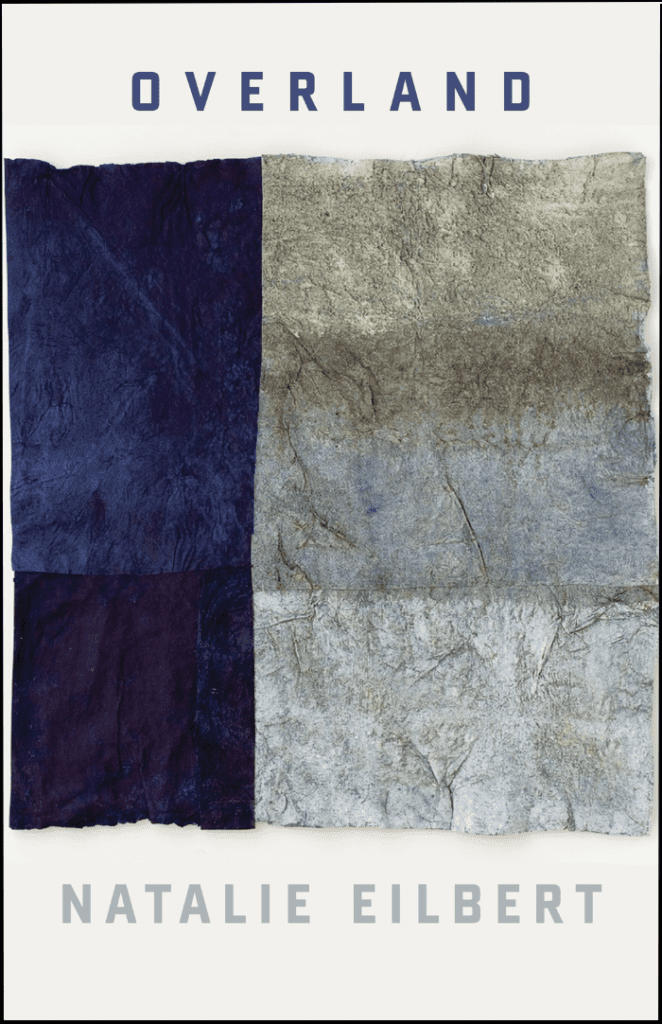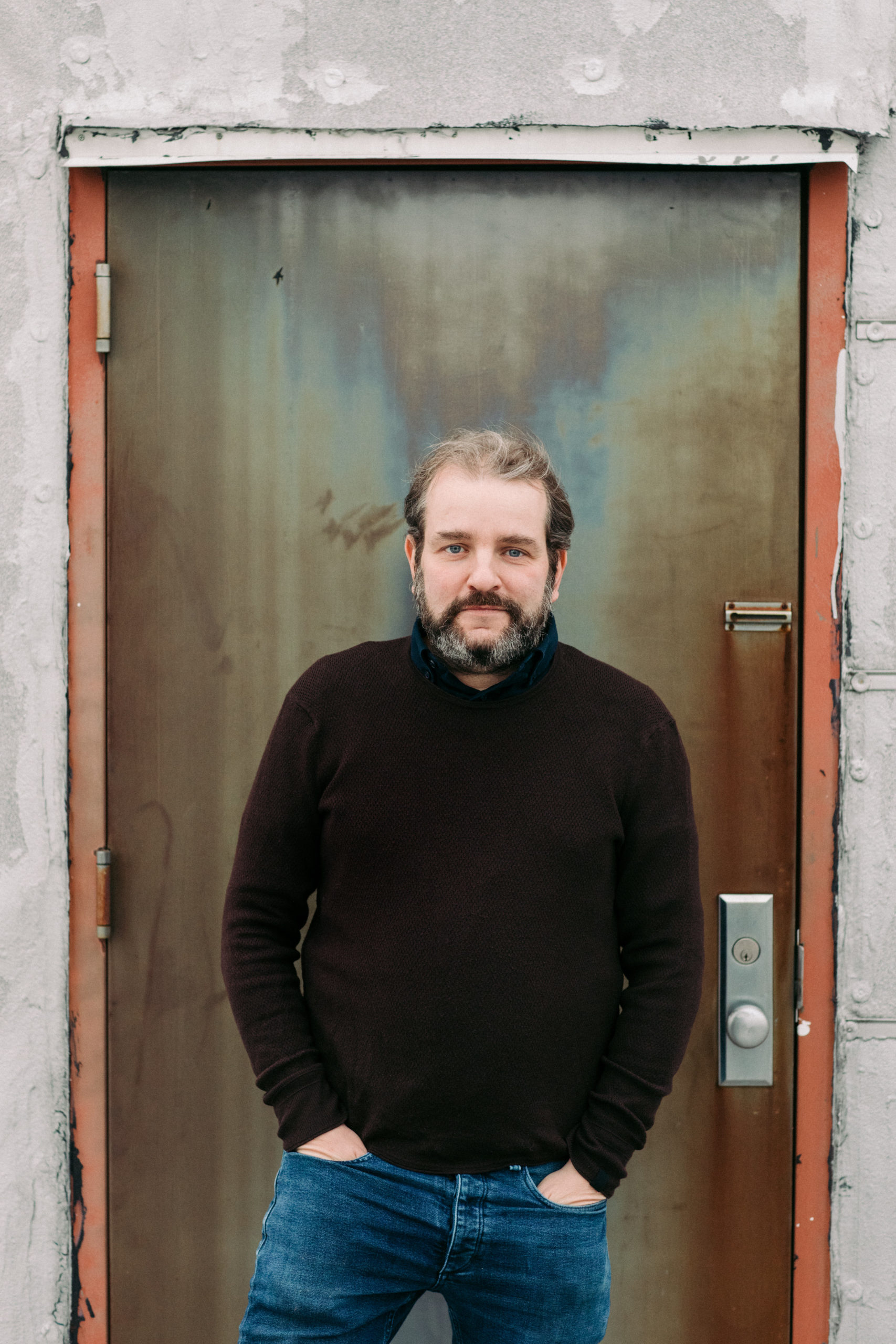A number of poetry books foresee and grapple with the likelihood of ecological collapse brought on by human action. The 1981 book-length poem alphabet by Danish poet Inger Christensen catalogues, alphabetically, things that exist in the natural world, such as apricot trees, alongside other things, like hydrogen, that, in a nuclear age, threaten to destroy them. Brenda Shaughnessy’s dystopian and visionary 2019 The Octopus Museum imagines a postapocalyptic future ruled by octopi who create an exhibit to remember the human species and its embarrassing failings. Poet and journalist Natalie Eilbert’s astonishing new collection, Overland, is neither pre- nor post-apocalyptic; instead, it positions the speaker of her poems not far from the caldera of the volcano as it erupts, a modern-day Pliny the Younger, who, writing of the eruption of Vesuvius in 79AD, observed, “Being at a convenient distance from the houses, we stood still, in the midst of a most dangerous and dreadful scene… The sea seemed to roll back upon itself, and to be driven from its banks by the convulsive motion of the earth. On the other side, a black and dreadful cloud…” Eilbert treats the apocalypse matter-of-factly, as something that is occurring right now, in our lifetime, slowly but unstoppably, around us.
The apocalypse in Overland takes many forms: climate change, the contamination of oceans, the proliferation of plastics, oil spill and wildfire, cancer and coronavirus, the senseless deaths of animals and children. “It isn’t a novel I’m writing,” Eilbert remarks in “Malignant,” “but a series of injunctions that matter only to earthen things, that/there is law for the rock insofar as there is a rock at all.” In these poems, time has run out. There is only the unfolding disaster to witness and catalogue as one continues to survive, lonely and helpless yet alive and full of dreams (these poems contain so many dreams). Eilbert concludes her poem “If Each Day I Lose Momentum,” “Is this//all I’m to have? I remain abstract, washed,/a body brimming habit, in thrall to image.”
The word “overland” connotes an arduous journey, a direct engagement with the environment and the vicissitude of nature. Broken into its constituent parts, “over land,” the term is also the root of global disputes, why nations go to war. “Over” can mean about, but also done, finis, kaput. But this is more a book of journey through life than despair at it. Overland opens with its title poem, asserting, “It isn’t useful to celebrate being alive/But I’d like to be generous.” Yes, water “sputters bacterially from a fountain,” “a duck/sleeps on cement,” and “all the clucking fathers/who said, Not in my lifetime” were wrong; nonetheless, the poem’s speaker awakens to multivitamins and enjoys an apple as she contemplates her own existence and that of a new nephew. The lake in front of her remains “blue/matter of a life I couldn’t refuse.” Maximalist, elegant, and smart, weaving between the global and the personal, stylistically bringing to mind the world-conscious work of such writers as Jorie Graham and Timothy Donnelly, the linguistically associative poems in Overland read like the unwavering thought process of a single being trying to come to terms with powerlessness. Eilbert writes in “The Limits of What We Can Do,” the book’s closing poem, “In my dream I wrote an article for Slate called “The Limits/of What We Can Do” in the face of annihilation/and it was received well.”
Perhaps my favorite poem here, “Edge Habitat,” takes as its inspiration a podcast about poison ivy and considers the challenge of childlessness, positing the poem as a kind of alternate offspring: “The swirl of my daughter’s hair is silken, not there… Let me contain this how I cannot the girl I dreamed named Daisy.” By this, Eilbert means not just the poem but the whole world imploding inside it, of Instagram and housing agents and a deer getting poison ivy on its snout and cadmium and “the suffocation of grasses” and minefields and the word minefield and a Cher song. She acknowledges, “A world outside leaches in,” and also, “I carry the elsewhere buzz of life under my nails, digging.”




